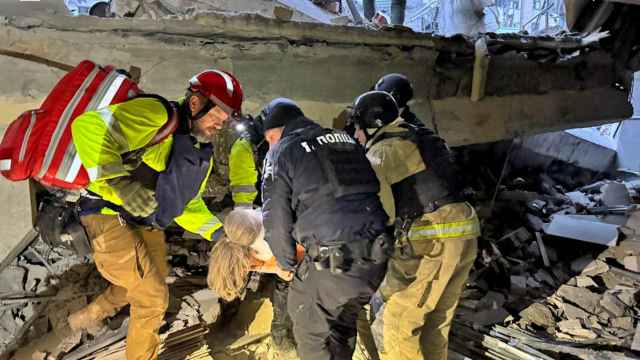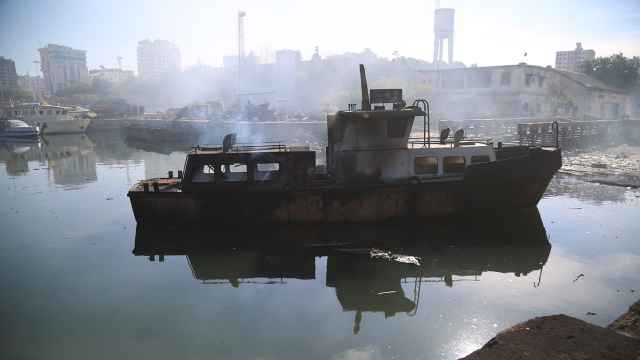An official in Ukraine who has been serving as a top government adviser on security was appointed Friday to head the presidential administration as a wave of demonstrations continues to plague the former Soviet nation's authorities.
The appointment of Andrei Klyuyev, who has headed a working group tasked with negotiating with the opposition, has been slammed by government critics as a signal of intransigence by the president's office.
Sergei Sobolev, head of the opposition Fatherland party's parliamentary faction, told RIA Novosti that Klyuyev was most likely being brought in to quell the protest movement.
"I am sure that the recent events haven't taught [President Viktor] Yanukovych anything, and I believe that Klyuyev … remains committed to the option of [using] force to resolve this developing crisis," Sobolev said.
Klyuyev, a wealthy businessman and long-time political ally of President Viktor Yanukovych, replaces Sergei Lyovochkin, who unexpectedly resigned last week amid a broad government shake-up.
Russian news website Lenta.ru suggested that ex-Security Council head Klyuyev was replacing Lyovochkin because the latter had not agreed with using heavy-handed measures to suppress unrest in central Kiev.
Dozens of protestors and riot police have been injured in clashes that began earlier this week. Two protestors have been officially confirmed dead, while the opposition claims at least five people have been killed.
Anti-government protesters have brought the heart of Kiev to a standstill for almost two months by occupying the central Independence Square in response to a government decision to pull back from a deal to forge closer relations with the European Union in favor of enhanced ties with Russia.
While initially focused on the EU decision, discontent in Ukraine has steadily taken on a more general anti-government character.
A Message from The Moscow Times:
Dear readers,
We are facing unprecedented challenges. Russia's Prosecutor General's Office has designated The Moscow Times as an "undesirable" organization, criminalizing our work and putting our staff at risk of prosecution. This follows our earlier unjust labeling as a "foreign agent."
These actions are direct attempts to silence independent journalism in Russia. The authorities claim our work "discredits the decisions of the Russian leadership." We see things differently: we strive to provide accurate, unbiased reporting on Russia.
We, the journalists of The Moscow Times, refuse to be silenced. But to continue our work, we need your help.
Your support, no matter how small, makes a world of difference. If you can, please support us monthly starting from just $2. It's quick to set up, and every contribution makes a significant impact.
By supporting The Moscow Times, you're defending open, independent journalism in the face of repression. Thank you for standing with us.
Remind me later.





